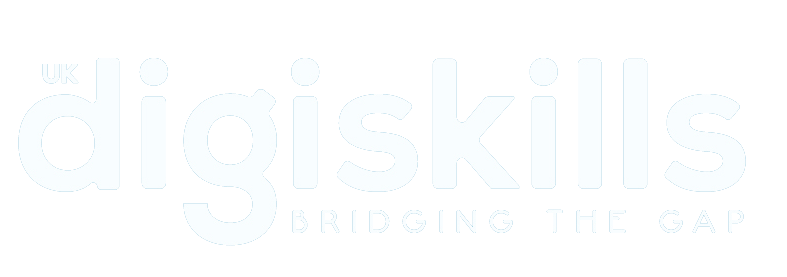Jobs in Digital: What can you do?
Whether you’re new to the workforce or you’re considering a career change, there has never been a better time than now to start looking for work in the digital sphere! It’s also relatively easy to break into digital as you can access a lot of software to build your portfolio for free online. E.g., Canva, Google Docs (to practice copywriting) and there are many free courses from major brands such as Google and Hubspot that you can do as well.

We’re going to break down the top 10 positions in digital and what you need to be able to do them.
1. Content Creator
There are so many types of content creation that one person could never do them all. But it also means that you can pick a field that fits your skill set. For example, if you find that you’re more artistically inclined, you could look into being a social media content creator. You would design social media templates and marketing campaigns either as a freelancer or as part of a company. If you find that you prefer writing, then you could become a blog and email campaign content creator.
Depending on where you’re aiming to go in content creation, a background in graphic design or copywriting/creative writing is preferable. However, you can easily build a portfolio online for free which some company’s may prefer.
2. Designer
Like with content creators, designer’s have a lot of choice. You can be a graphic designer and help design and make product mockups and advanced ad campaigns, or you can learn how to design and make websites!
No matter what you choose, your main role is to take your client’s concept and translate it into ‘digital assets’. Your client should always be at the heart of what you’re designing.
Ideally you would have a background in graphic design but you can also train yourself online. Keep in mind though that some clients/brands will want you to be able to use Adobe Photoshop which can be an expensive software to invest in.
3. SEO Assistant
SEO stands for Search Engine Optimization. Working in SEO means that you’ll be helping clients boost their website on search engines such as Google, Bing etc.
This can be done in many ways and you may be required to ‘wear many hats’. You may need to learn how to write effective blogs (some content creation skills may be necessary), learn about technical and on screen SEO, and analyze the website traffic to see where it’s coming from and how to boost it in other areas.
If you have an analytical mind and enjoy figuring out puzzles, this could be the ideal role for you. As mentioned, some content creation skills may be necessary if you work in a company, but it’s up to you if you offer those services as a freelancer.
You can take a few courses on SEO, but there isn’t much in the way of formal education. A background in general marketing may be beneficial, otherwise, work experience will get you the furthest.
4. UX Writer
UX, a buzzword you may have seen floating around, means User Experience. Whenever a job has UX in it, it means that you need to be able to put the user at the center of the project. You’ll need to be able to take in their
A UX writer, put simply, writes copy for products and websites. It differs from content creators as a content creator usually needs to have a general understanding of many things, a jack of all trades. Whereas a UX writer is usually specialised to work on websites and have a background in the product.

A UX writer would also work as part of the web/product development team and conduct some consumer research to make sure their copy is targeting the correct audience. At points you may even have to liaise with legal teams.
To be a UX writer, you’ll usually need a background in copywriting both microcopy and longform, as well as an understanding of the product development process. You’ll also need to be able to analyze and track data.
5. UX Designer
Project management is a key tool in a UX Designer’s arsenal. You’ll need to be able to manage a project from start to finish while keeping the user at the center of everything you do.
As a UX Designer, you’ll be working with primarily websites and other digital assets such as phone apps, games etc. You’ll need to be able to conduct consumer research, analyze and track data, manage a team, articulate your design needs to your team and draw up wire frames.
This is quite an advanced position so a background in project management is beneficial as well as other UX work, such as a UX Writer.
6. UI Designer
Much like ‘UX’ means User Experience, UI means User Interface. You’ll still need to be able to put your user at the center of your project, making sure to prioritize their needs.
Where a UX Designer will focus on the project as a whole, the UI designer will focus solely on the interface of the website, app or asset. Your job will be making sure that the interface is easy to use whilst keeping the wants of the client in mind.
You will need to have a keen eye for detail and will often be working with interactive design (animation, interactivity) as well as visual design (colour palette, typography, buttons etc).
A background in design whether website or graphic will be beneficial here as will experience with front end development. The ability to code will definitely set you apart in the job market. With any role based on the user, you will need a high level of empathy.
7. PPC (Pay Per Click) Account Manager
Pay Per Click (PPC) is the way some brands advertise their website or product. When you Google something, you’ll often see ‘Ad’ on the top five or so entries. These have paid to be there and are a result of successful PPC campaigns. Everytime someone clicks on one of the ads, Google (or whatever search engine it’s on), will charge the company anywhere from 50p – £20+.
PPC managers will need to have experience in advertising campaigns and be able to analyze and track data. You’ll need to be able to calculate your CPC and CPA (cost per click and cost per acquisition) and analyze whether the campaign is having the desired effect or not; is your client gaining more sales/leads etc.
Pay Per Click Managers will need to be able to design website landing pages so a background in website development is a must. You’ll also need training/experience in advert management. There are some free courses you can take online including Google’s, Google Ads course which is currently free!
8. Conversion Optimizer
A conversion optimizer is pretty self explanatory. Your main duties will be to look at the marketing funnel and see where it can be improved to meet your client’s goals (lead generation, sales etc). You’ll need to run tests and analyze the data as part of continuous improvement.
This would be good for anyone with an analytical mind. You’ll need a background in marketing and A/B testing. You’ll also need to be able to work as part of a team and independently, as well as managing interdisciplinary teams. Project management is also a key skill.
9. Digital Strategist
Digital Strategists, usually freelancer’s, will help companies and brands connect the dots and solve marketing problems. If a campaign isn’t working as intended or no matter how much content you push, your following doesn’t grow, you’d bring in a Digital Strategist.
As a digital strategist, you’ll need to have an understanding of traditional and digital marketing, stakeholder analysis, how businesses work and project management. You’ll be driving change and continuous improvement in organisations to help improve their brand outreach, sales, leads or meet whatever goals they’ve set.
10. Copywriter
Copywriting may come under content creation at points, but it covers such a large variety of topics that we’ve included it as a separate category. It’s been said that content writers write to inform whereas copywriters write to get people to take action.

As a copywriter, you’ll work either as a freelancer or as part of a company to write for their websites (could dip into UX Writing here), for their social media and marketing campaigns (social media marketing and content creation), as well as helping to draw up press releases, email marketing, newsletters etc. Copywriters need to have range in what they can do, but you can specialise in one field e.g. tech, publishing, beauty etc.
You’ll work closely with the marketing teams to create content that they can then use in their campaigns. You may also work with the SEO teams to improve copy on websites and other digital assets. You’ll need strong written skills as well as the ability to edit and proofread yours and others’ work.
Copywriters need to be able to write without the presence of their ‘voice’. Everything you write needs to align with what the company/client has previously published and will need to adhere to their style guide.
These are just a few of the opportunities available to potential digital marketers, and there are so many more roles out there! You can specialise in just one aspect of digital marketing and never learn it in its entirety. That’s one of the best aspects of marketing, it’s always evolving. As an industry, we are always evolving and learning how to improve.
If you’re interested in any of these services, contact us now for a free consultation!



